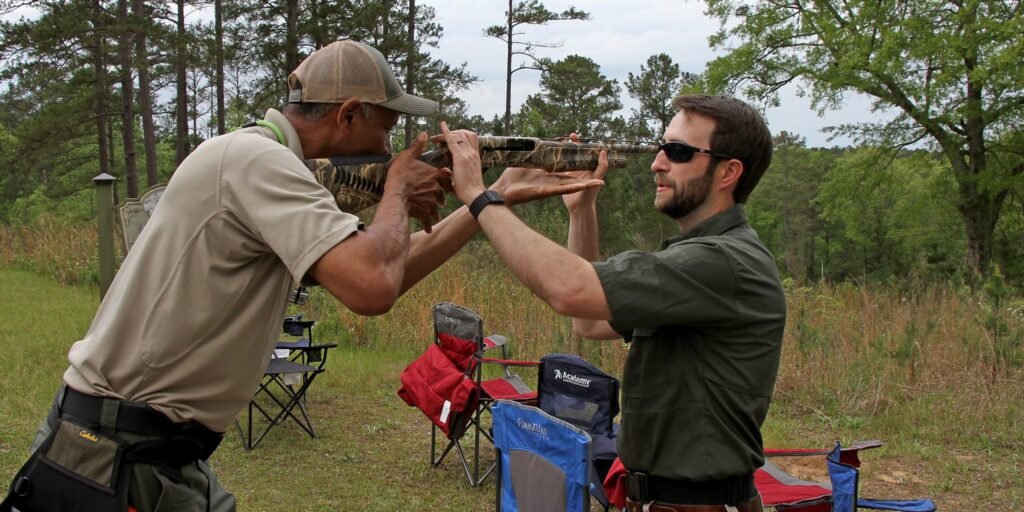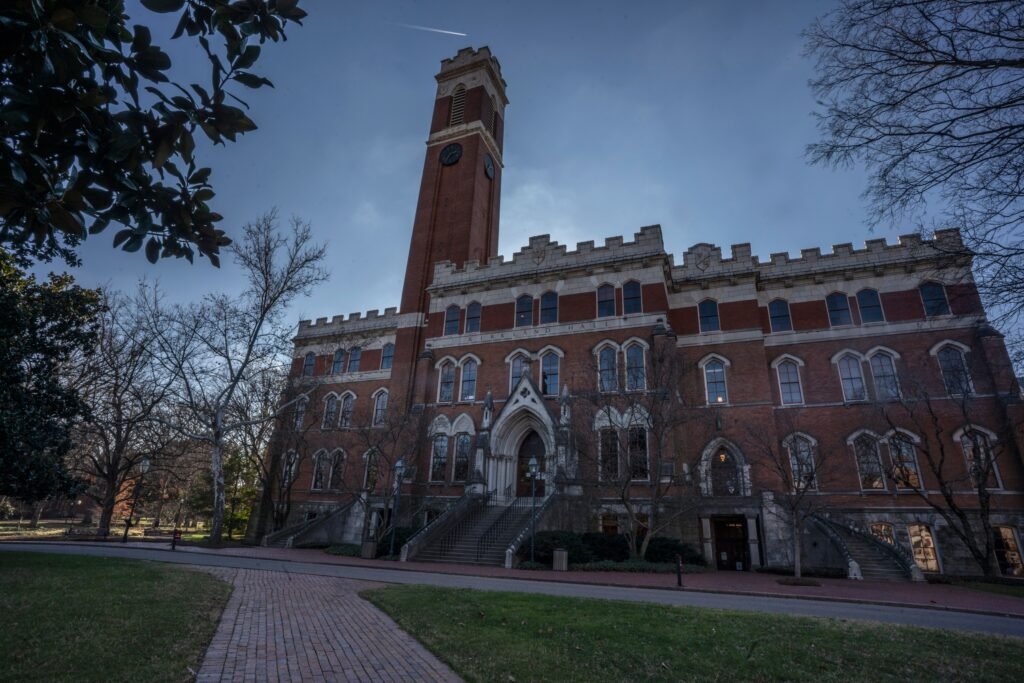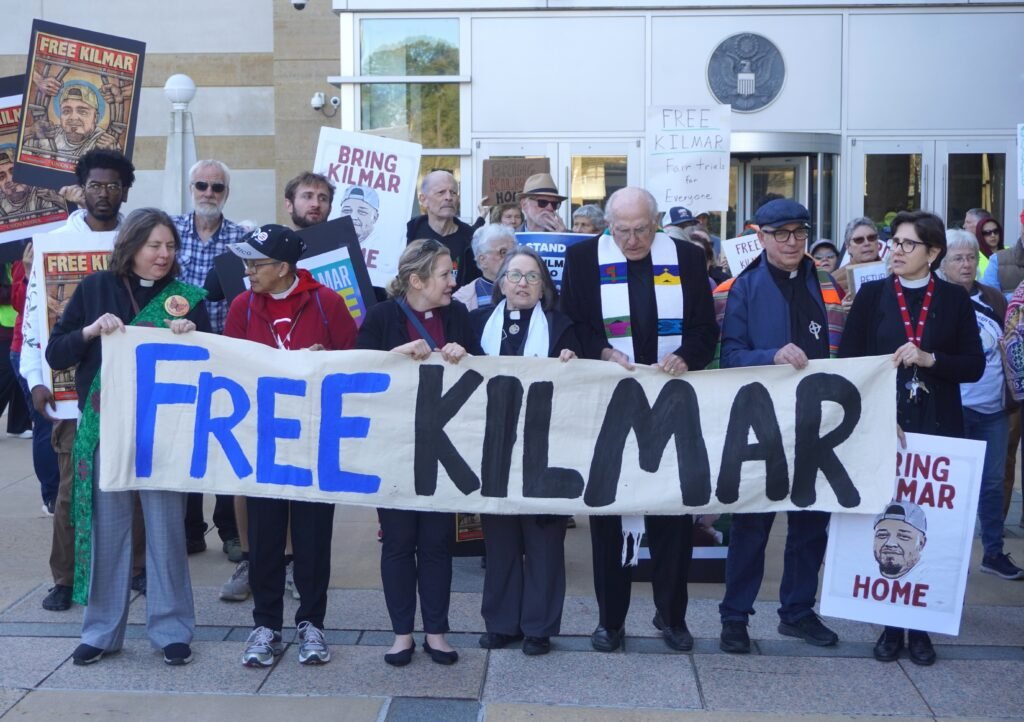One of the goals of the Alabama Department of Conservation and Natural Resources (ADCNR) is not only to manage and protect our abundant natural wonders, but also to share Alabama’s great outdoors with all.
ADCNR's Wildlife and Freshwater Fisheries (WFF) Division's R3 program is a key part of outreach efforts to get Alabama residents and visitors outdoors and enjoying the many outdoor recreational opportunities in our beautiful state. R3 Coordinator Justin Grider and his team want to get the message of the benefits of getting outdoors out to those who have little or limited opportunities to get outside, those who are being encouraged to continue outdoor activities, and those who once participated but need encouragement to get started again.
One aspect of R3 in Alabama (recruit, retain, revitalize) is an outreach effort to schools across the state, which led to one of the programs being rebranded. Now called the Campus Integrity Program, this effort was primarily aimed at universities but has been expanded to all educational institutions.
The Campus Conservation Program is led by Sergeant Bill Freeman, who also patrols Bulloch County forests as a conservation enforcement officer. Freeman has worked with universities for several years to engage students in outdoor adventures, and he wanted to expand his outreach to all learning settings.
“We renamed the University Conservation Program to the Campus Conservation Program so that instead of just focusing on universities, we're targeting all K-12, junior colleges and universities,” Freeman said.
Grider added that the outreach will also be expanded to vocational, technical and culinary schools.
“We're adding every educational institution we can think of to talk about conservation, conservation education and outdoor recreation,” Grider said.
Freeman said participation in the program in recent years has primarily come from HBCUs (Historically Black Colleges and Universities), but the program has always been open to all colleges.
“The biggest thing was hiring an R3 assistant coordinator (Olivia Wilkes) to help us recruit more colleges,” Freeman said.
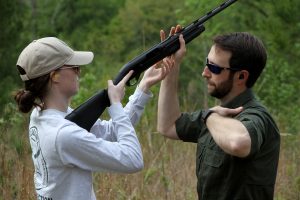
Participating campuses for the 2023-2024 calendar include Auburn University, Tuskegee University, University of Montevallo, Alabama A&M University, Alabama State University, Jacksonville State University, University of Alabama at Huntsville and Calhoun Community College. The Montgomery Parks and Recreation Department will also be on board to host events for various student groups.
“Olivia's position is focused on outreach, so it pairs well with our campus conservation and adult mentored hunting programs,” Grider said. “She provides outreach opportunities for people to get involved specifically in outdoor recreation such as hunting, trapping and shooting. We want people to understand the process and ultimately be able to purchase a license and contribute to conservation funds.”
The majority of funding for ADCNR’s conservation efforts comes from the sale of hunting and fishing licenses, and from people who purchase a Wildlife Heritage License to use one of the state’s managed shooting and/or archery facilities, with three-to-one federal matching funds allocated depending on the number of licenses sold and the state’s land area.
The R3 program will soon be joined by another assistant, Bridget Murphy, who will focus on visiting classrooms around the state to spread the message of environmental protection.
“Bridget's position is very much focused on the education piece, so we see her and Olivia's efforts as a one-two punch,” Grider said, “Bridget will be bringing environmental education specifically to schools.”
Grider said WFF has participated in educational activities over the years, giving guest lectures and serving as experts in lab and field studies, and Freeman's work at Auburn University led directly to Wilkes' hiring.
“Bill taught a hunter education class at Auburn University,” Grider said, “Olivia completed that class and wanted to stay more involved. She did a few ride-alongs and Bill got her involved in other programs and mentored her. He taught her how to be a hunter and that's what inspired her to pursue a career in conservation and do what she did, especially in college. It's really neat to see it come full circle.”
Freeman said it's especially gratifying to see students embracing the different aspects of the outdoors.
“It's great to see students who have no hunting or fishing experience come in and take an animal, like a deer, for the first time,” Freeman said. “We teach them how to butcher and process the meat in the field. It's great when they hit the ground running. They're so enthusiastic. They really want to do it and it's great to see them so excited to put their own meat on the table. It's an eye-opener for people who don't have that experience to see what this opportunity can bring.”
Alabama's R3 efforts will be featured at the National R3 Symposium, hosted by the Hunting and Shooting Sports Advancement Council from May 29 to June 1 at the Riverview Plaza Hotel in downtown Mobile.
“We're honored to host it,” Grider said. “We'll have R3 experts from environmental advocates, NGOs (non-governmental organizations) and industry. We'll have sessions where we brainstorm and talk about programs that work. We'll talk about new ideas, new concepts. We'll talk about what we can do to change the long-term decline in participation that we've seen nationally and in some cases locally.”
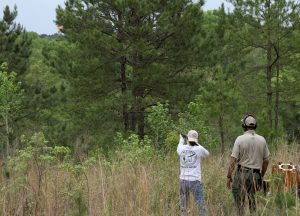
“We've been fortunate in Alabama to have relatively stable participation numbers. The number of license holders has actually increased this year, which is a good trend. I think some of the positive trends are a result of our agency's work, but also a result of what's happening across the country that's contributing to people getting outdoors, understanding where their food comes from, spending time in nature, spending time with friends and family in places that are conducive to their health and mental health. We look forward to welcoming people from all over. There are a lot of great programs in Alabama, and we're really proud of what we do, so I look forward to you guys seeing our state and some of our programs. We're going to encourage people to go redfish, trout fishing, and maybe snapper fishing while they're here.”
One of the R3 programs to be featured at the symposium is the Adult Mentored Hunt program, led by Regional R3 Coordinator Brandon Holloway. Mentored Hunts are designed for individuals with no or limited hunting experience to learn from veteran mentors about all aspects of hunting, from how to prepare for the field to preparing the hunted animal for their family dinner table.
Holloway said the hunt has been well-received by those who have participated in the adult mentored hunt program, as well as hunts in Special Opportunity Areas (SOAs). Outdoor Alabama
“We've had really positive feedback from the people who have participated in the program,” Holloway said. “They enjoy it. Several people who have participated in the program have gone out hunting on their own. A few have even killed deer or turkeys, and they send us pictures and say, 'Thank you' to the course.”
“We have some repeat customers, and we hope to continue to grow that number. Some who have participated in the Adult Mentoring Program have returned to us to participate in other programs we offer. Some return wanting to become mentors. We've supported them through classes and the vetting process, and they've done well.”
Grider added: “We do have some people who jump in, whether that be selling their sedan and buying a four-wheel drive truck or buying land so they have somewhere they can manage and hunt themselves. This has an incredible impact on some people. And then there are those who decide hunting isn't what they want to do, but they've learned about the ministry and how conservation work is funded.”
“We now have collaborators who will go out and share information, spread the word and help us expand our reach and the overall impact of the program. We want people to get involved, but we also want people to support and advocate. We get that every year from this program.”
Do not miss it! Subscribe now Get the top Alabama news stories delivered to your inbox.

